James Parkes (1896-1981), whose Library on Jewish/non-Jewish relations is the largest and best used of the printed Special Collections, was a keen collector of pamphlets. For him, they gave the “day to day savour of an actual period which a historian seeks to catch”. Describing the collection’s transfer to Southampton in (appropriately) a pamphlet, Parkes highlighted the 2,000 historical and contemporary pamphlets which he had acquired, and described the immediacy he found when studying those from the emancipation period.
Thanks to Parkes, users of his Library can find the same immediacy in the leaflets and pamphlets that he collected during the 1930s and 1940s. Intended to educate and inform, most were produced by the organisations with which he worked to combat antisemitism in this country or to help refugees from Nazi Europe. Amongst the pamphlets are publications by the Board of Deputies of British Jews, the Christian Council for Refugees from Germany and Central Europe and the National Committee for Rescue from Nazi Terror.
In response to the formation of the British Union of Fascists in 1932 and the growth of antisemitism, the Board of Deputies circulated a range of leaflets and pamphlets for both Jewish and non-Jewish audiences via its Press and Information Committee and later its Coordinating Committee. Addressing the Jewish community, they warned against attending fascist meetings where clashes between the groups would create public disorder, whilst other pamphlets stressed the patriotism of the Jews, the contribution they made to society and also the threat to the Jewish communities of Germany and Austria.
As well as publishing pamphlets and reprinting articles from the press, the Board also supported speakers at open-air campaign meetings, often held in the same place and immediately after an antisemitic meeting. Each of the series of thirty Speakers’ Notes addresses an individual antisemitic allegation, giving a refutation based on authoritative sources. In the initial “Hints to Speakers” they are advised, amongst other things, to keep to the facts and verify references, to treat all questioners with the greatest courtesy and to stick to policy and avoid personalities.
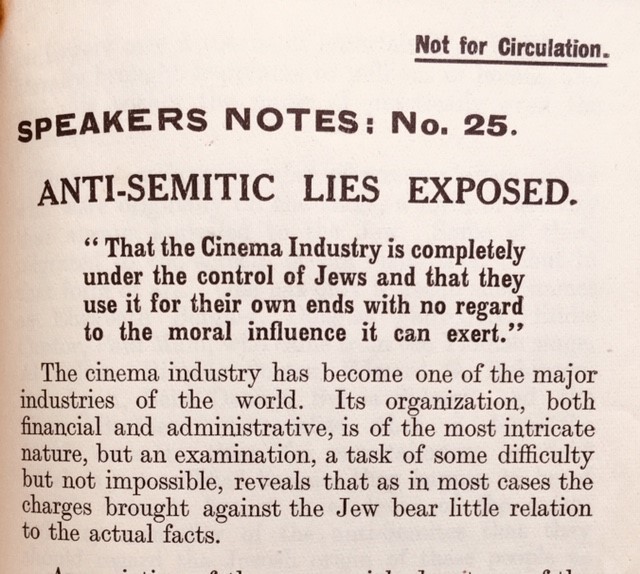
As the situation deteriorated in Europe, many organisations were set up to help refugees. The Christian Council for Refugees from Germany and Central Europe was established in 1938 to raise funds for the relief of “non-Aryan” victims of Nazi oppression, that is those who were defined as Jews by the Nazis, but not Jewish by religion. James Parkes was a member of its Council whilst Rev. W.W. Simpson was the General Secretary from 1938-1942. The pamphlets published by the Council were intended to generate support for its work and to overcome negative attitudes towards refugees. Titles included Refugees Have Proved their Worth and Refugees and Industry which highlighted the work of refugee industrialists in establishing over 300 factories in Britain, often in deprived areas, in the six years prior to the war.
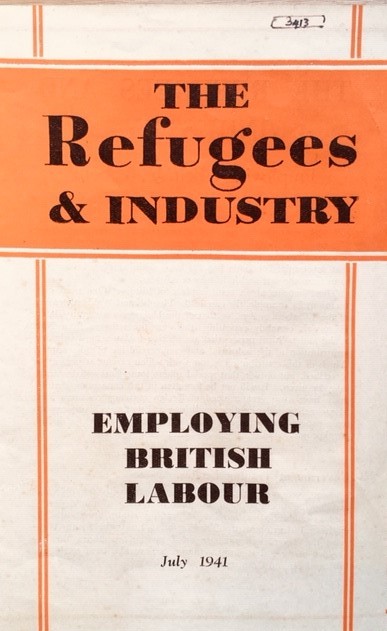
With so many organisations becoming involved in the struggle to help European Jews, the picture was muddied for both those seeking help and those trying to provide it. A Central Office for Refugees was created as a communications channel between government departments and the refugees organisations, the Executive Committee consisting of representatives of the Central Council for Jewish Refugees, the Christian Council and the Refugee Children’s Movement. The pamphlet Bloomsbury House (1942) issued by the Central Office provided a guide to all the refugee organisations headquartered at Bloomsbury House (making it clear why such a guide was needed) and was also a manual of general information on questions of refugee employment and welfare. The Central Office’s pamphlet, Entertaining our Refugee Guests provided advice under such headings as private hospitality and entertainments.
Another organisation with which Parkes was involved, this time as a member of its Executive Committee, was the National Committee for Rescue from Nazi Terror. Set up in March 1943, the Committee worked to bring the pressure of public opinion to bear on the British Government in the hope that it would take a lead in rescuing and providing a home for Jewish refugees. Again, publications were seen as crucial in both publicising the Nazis’ treatment of the Jews and in generating support. Rescue the Perishing (1943) by Eleanor Rathbone M.P., a prominent member of the Committee, contained descriptions of massacres in Poland, a twelve-point programme of rescue measures as well as replies to anticipated objections such as “we cannot spare the food” or “we have not the accommodation”.
The pamphlets collected by Parkes show the changing priorities as the organisations with which he was associated attempted to counter antisemitic and fascist propaganda, to help refugees in the 1930s and to save Jews in the 1940s. Used to publicise the events which had, in some cases brought the organisation into being, they were intended to influence public opinion and to generate support, both financial and moral. For today’s readers, they provide something of the “day to day savour” of the period, which made pamphlets so important to Parkes.

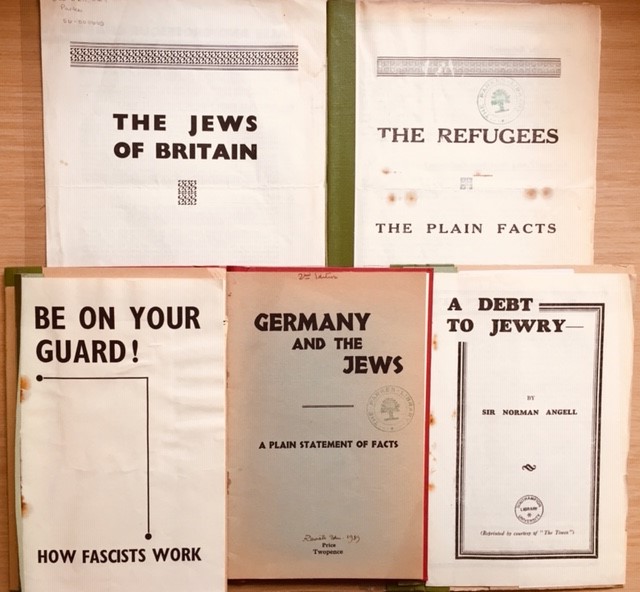
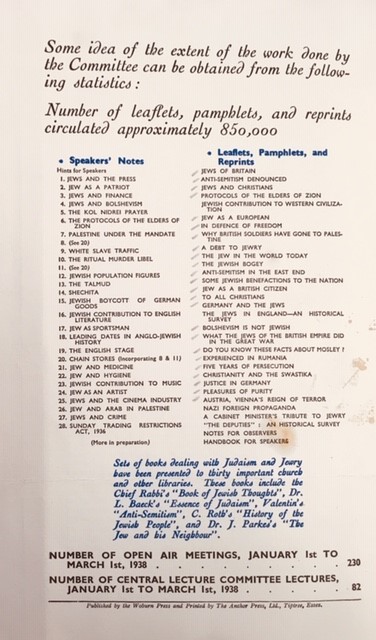
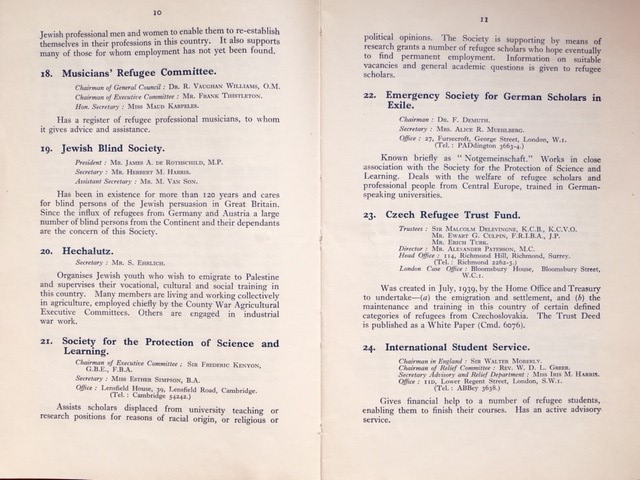
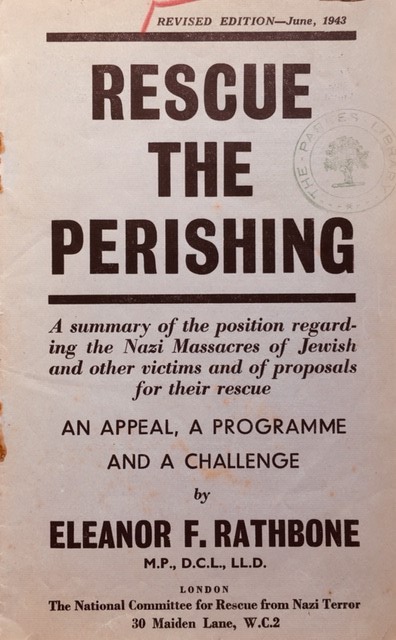
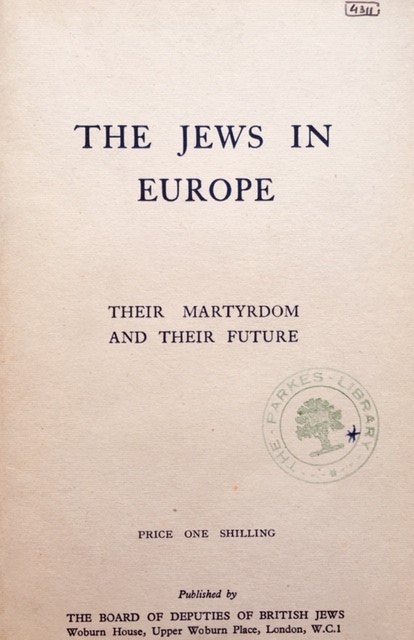
![Men's football team, 1953-4 [photo_MS1_7_291_22_4] Men's football team, 1953-4 [photo_MS1_7_291_22_4]](https://live.staticflickr.com/65535/50089268168_f26eed63ef_s.jpg)
![Women's rowing team, 1961-2 [MS1_7_291_22_4] Women's rowing team, 1961-2 [MS1_7_291_22_4]](https://live.staticflickr.com/65535/50090079577_3b7acbde42_s.jpg)
![Men's rugby team, 1953-4 [MS1_7_291_22_4] Men's rugby team, 1953-4 [MS1_7_291_22_4]](https://live.staticflickr.com/65535/50089268523_4f2c587220_s.jpg)
![Women's hockey team, 1953-4 [MS1_7_291_22_4] Women's hockey team, 1953-4 [MS1_7_291_22_4]](https://live.staticflickr.com/65535/50090079692_28114e9c7d_s.jpg)